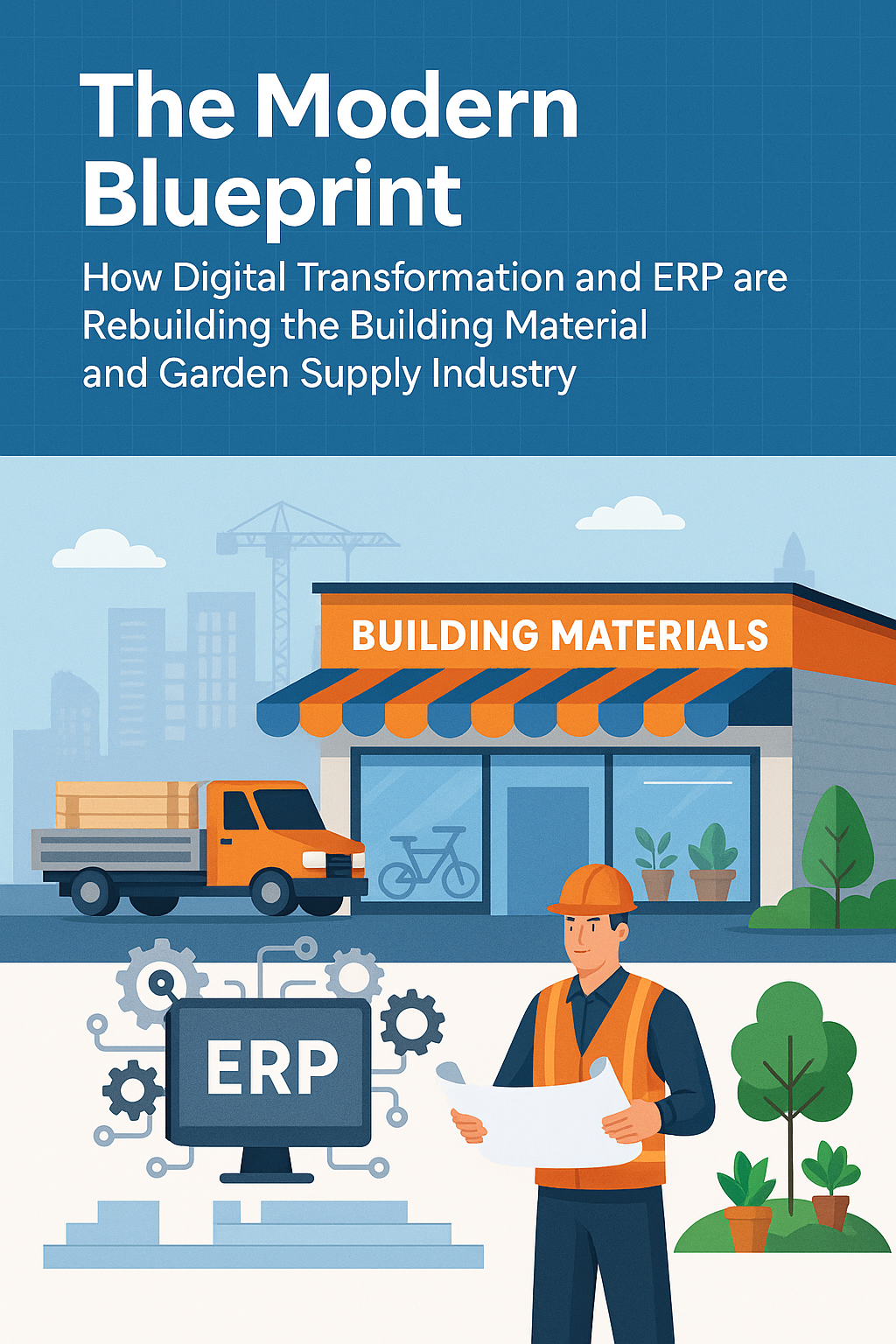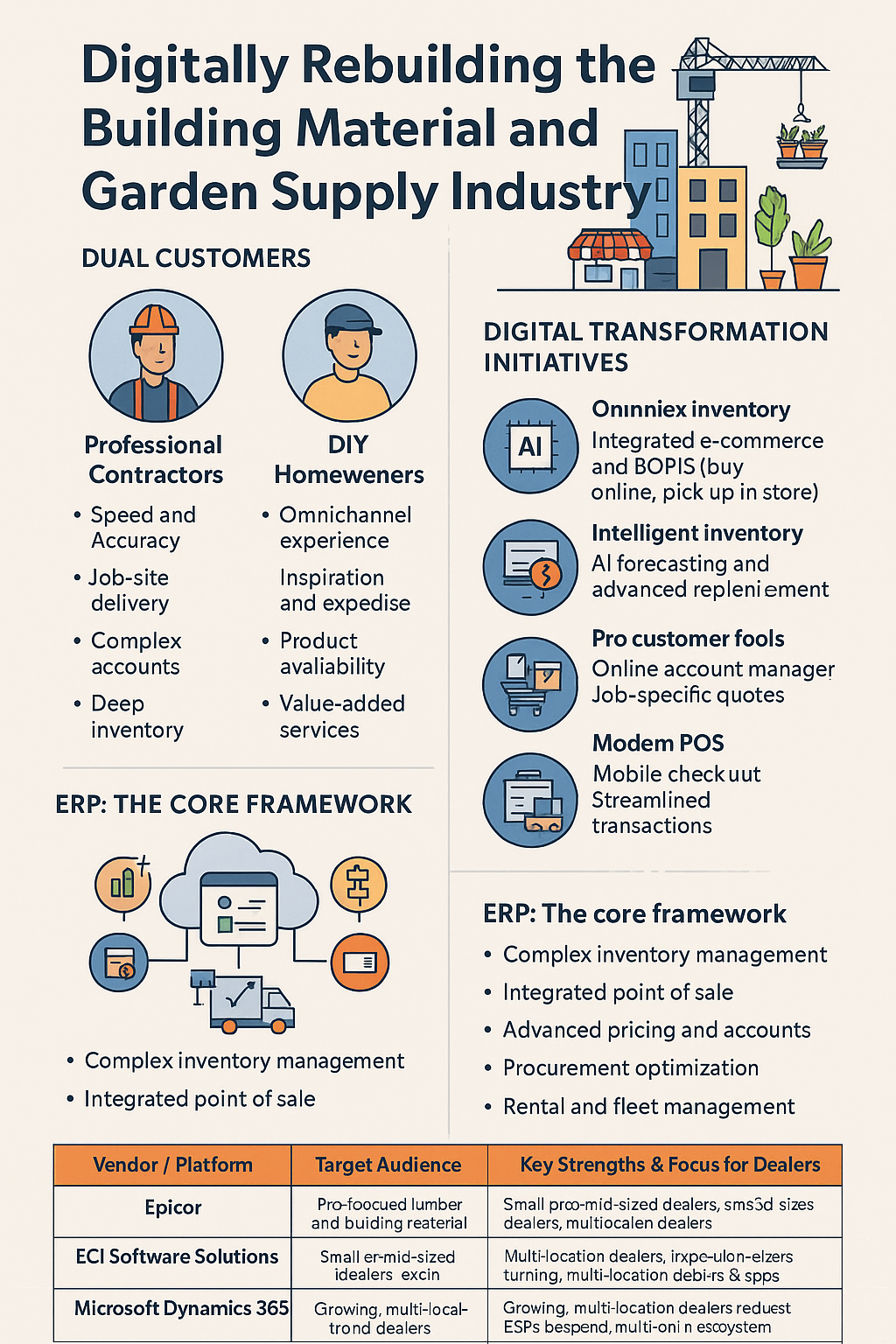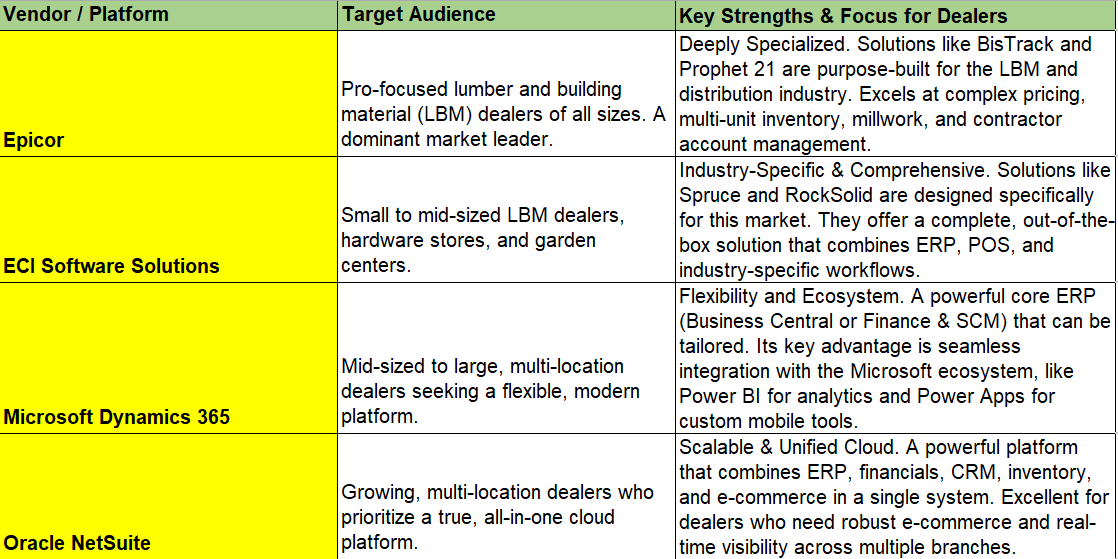The Modern Blueprint: How Digital Transformation and ERP are Rebuilding the Building Material and Garden Supply Industry
2025-08-28 · By Anil Kancharla · 8 min read
❤️ 0 Likes · 👁️ 0 Views
 AI-generated image for illustration purposes only.
AI-generated image for illustration purposes only.
The Modern Blueprint: How Digital Transformation and ERP are Rebuilding the Building Material and Garden Supply Industry
 AI-generated image for illustration purposes only.
AI-generated image for illustration purposes only.
The Modern Blueprint: How Digital Transformation and ERP are Rebuilding the Building Material and Garden Supply Industry
In every growing community, the rhythm of progress is constant. It’s the sound of construction on new homes and commercial buildings, the buzz of activity in backyard gardens, and the steady flow of materials from local dealers. The Building Material and Garden Equipment and Supplies industry is the essential supplier to this progress. Yet, this vital sector faces one of the most complex operational challenges in modern commerce: serving two profoundly different customers simultaneously and exceptionally.
On one side is the professional contractor, whose business relies on speed, accuracy, complex logistics, and credit. On the other is the DIY homeowner, who seeks inspiration, expert guidance, and a seamless, convenient shopping experience. In 2025, thriving as a dealer means mastering this operational duality. The key to this mastery lies not in expanding the warehouse, but in building a smarter business through digital transformation. At the very foundation of this modern structure is a powerful, integrated Enterprise Resource Planning (ERP) system.
This in-depth blog post will explore the unique landscape of the building material and garden supply industry, uncover the immense opportunities of its digital evolution, and provide a comparative analysis of leading ERP solutions designed to help dealers construct a more resilient and profitable future.
The Dual Challenge: Serving Pros and Homeowners in 2025
The core complexity for any dealer in this space is the split personality of their customer base. Long-term success hinges on serving both masters without compromise, as their needs are fundamentally different.
The Professional Contractor's Demands: The "Pro" customer views the dealer as a critical business partner. Their needs are urgent, transactional, and multifaceted. They require:
- Speed and Accuracy: For a contractor, time is money. They need fast, accurate quotes for complex jobs, rapid order fulfillment from a dedicated Pro desk, and zero errors in materials or billing.
- Job-Site Logistics: Reliable, on-time delivery of often bulky and heavy materials directly to the job site is not a value-add; it's a core requirement for keeping their projects on schedule.
- Complex Account Management: Pros operate on a different financial level. They need job-specific accounts, flexible lines of credit, tiered pricing based on their business volume, and detailed, accurate invoicing that can be easily reconciled.
- Deep and Reliable Inventory: They expect the dealer to have the specific grades of lumber, types of fasteners, or brands of equipment they need, in the right quantity, at the right time. A stockout on a critical item can cause costly project delays.
The DIY Customer's Expectations: The homeowner or DIY enthusiast is on a journey of personal project fulfillment. Their needs are experience-driven and demand a different set of capabilities. They expect:
- An Omnichannel Experience: Their journey starts online. They want to research products on a user-friendly website, check local store inventory from their phone, buy online for in-store pickup (BOPIS), and have a smooth, frictionless checkout process, whether on their device or in the store.
- Inspiration and Expertise: They rely on knowledgeable store staff for advice on everything from which plant is best suited for their climate to the right tool for a weekend project. The dealer is a source of both materials and knowledge.
- Product Availability and Convenience: While they may not buy in bulk, they expect the store to have what they need for their project. The in-store experience must be clean, well-organized, and easy to navigate.
- Value-Added Services: In-store services like equipment rental, key cutting, and paint mixing are significant differentiators that build customer loyalty.
The Digital Blueprint: Rebuilding the Dealer Experience
Digital transformation provides the tools to bridge the gap between these two worlds, creating a more efficient, data-driven operation that can effectively cater to both customer types from a single, unified foundation.
-
Omnichannel Strategy: Bridging the Physical and Digital Aisles A modern dealer's website can no longer be a static digital brochure. It must be a powerful e-commerce engine that provides real-time inventory visibility at the store level, facilitates BOPIS and curbside pickup, and offers a seamless experience on any device. This is the new front door for your DIY customers and an increasingly vital tool for your Pro base.
-
The Intelligent Inventory: Beyond Just Counting Stock Given the sheer complexity of inventory—from lumber sold by the board foot, to seasonal plants with a limited shelf-life, to thousands of SKUs in a hardware department—basic inventory management is a recipe for failure. Digital transformation here means:
- AI-Powered Demand Forecasting: Using AI to analyze sales history and market trends to predict demand for seasonal items, event-driven supplies, and materials tied to construction forecasts.
- Advanced Replenishment: Automating purchase orders based on sophisticated forecasting to prevent both stockouts of critical items and costly overstocking of slow-moving ones.
- Cycle Counting & Real-Time Tracking: Using mobile devices and barcode scanners to perform continuous inventory counts, ensuring the inventory data in the system—and displayed on the website—is always accurate.
-
Empowering the Pro Customer with Digital Tools Digital tools can transform the relationship with your most valuable customers. A dedicated Pro Portal allows contractors to log in 24/7 to:
- Check their account status and pay invoices online.
- Create and manage material lists for specific jobs.
- Request quotes and easily convert them into active orders.
- Track the status of their job-site deliveries in real-time.
-
Modernizing the Point of Sale (POS) and In-Store Experience The checkout counter is a critical touchpoint. Modernizing the POS means deploying systems that can handle complex transactions (like special orders, returns, and contractor account sales) with ease. Mobile POS tablets allow associates to check out customers with bulky items directly in the lumberyard or nursery, busting lines and vastly improving the customer experience.
The Unified Yard: ERP as the Single Source of Truth
With e-commerce orders, in-store sales, contractor accounts, rental agreements, and incredibly complex inventory, how does a dealer manage it all without descending into chaos? This is the essential role of an Enterprise Resource Planning (ERP) system designed for the building materials and garden supply industry.
The ERP is the central hub that connects every piece of data and every transaction. It ensures that the website, the POS system, the sales team, and the back office are all operating from a single, real-time source of truth.
Core Benefits of a Dealer-Focused ERP:
- Mastering Complex Inventory: An industry-specific ERP is built to handle the unique challenges of your inventory, including multiple units of measure (each, box, pallet, linear foot), product kitting (e.g., a "deck package"), and managing non-stock, special-order items seamlessly.
- Integrated Point of Sale (POS): A modern ERP features a fully integrated POS module. This means every sale rung up at the counter instantly updates inventory levels, customer accounts, and financial records in real-time. There is no manual reconciliation, which eliminates errors and provides an accurate, up-to-the-minute view of the business.
- Advanced Pricing and Contractor Account Management: The ERP manages the complex web of contractor pricing, including contract pricing, volume discounts, and job-specific quotes. It also handles credit management and the complexities of progress billing for large projects.
- Streamlined Procurement and Supplier Relations: The system helps manage purchasing from thousands of suppliers, tracks lead times, and can even suggest reorder points based on advanced forecasting, ensuring you have the right products on the shelf at the right time.
- Rental and Fleet Management: For dealers who rent equipment or manage a delivery fleet, specialized ERP modules can track asset maintenance schedules, manage rental contracts, and optimize delivery routes to save time and fuel.
Choosing Your System: A Look at Leading ERPs for Dealers in 2025
The ERP market includes powerful, industry-specific players who understand the unique DNA of a building material and garden supply dealer.

Building a Foundation for Growth
The future for building material and garden supply dealers is not about choosing to serve either the Pro or the DIY customer. It's about building a business that can serve both exceptionally. The winners will be those who use technology to create an efficient, data-driven operation on the back end, which enables a seamless, personalized experience for every customer on the front end, whether they're building a skyscraper or planting a garden.
By embracing digital transformation and building their business on the solid foundation of an industry-specific ERP system, dealers can move beyond simply selling supplies and become indispensable partners in building and beautifying our communities.
💌 Enjoyed this article?
If you found this post valuable, subscribe to my newsletter for more insights on digital transformation, AI, and business innovation.
👉 Subscribe to the newsletterOr let’s connect on LinkedIn — I share weekly content that’s practical for CIOs, CFOs, and transformation leaders.
🔗 Connect with me on LinkedIn